Search
Search Results
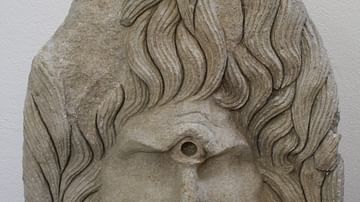
Definition
Cyclops (Creature)
A cyclops (meaning 'circle-eyed') is a one-eyed giant first appearing in the mythology of ancient Greece. The Greeks believed that there was an entire race of cyclopes who lived in a faraway land without law and order. Homer, in his Iliad...
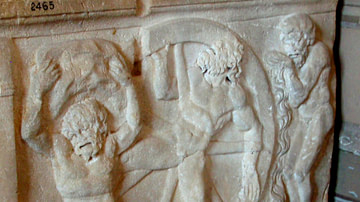
Definition
Tartarus
In Greek mythology, Tartarus was the lowest point of the universe, below the underworld but separate from it. Tartarus is best known from Hesiod's Theogony as one of the first beings to come into existence in the universe and also as the...
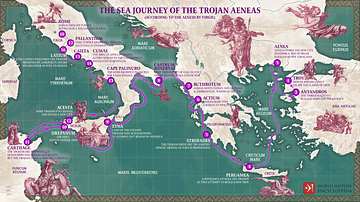
Image
The Journey of Aeneas from Troy to Rome
A map illustrating the epic journey of Aeneas, a Trojan hero (according to Virgil's poem The Aeneid) who, destined to found Rome, flees Troy after its fall and, much like Odysseus, spends years wandering the Mediterranean. He encounters the...
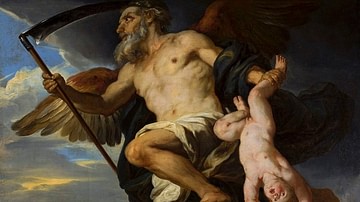
Definition
Cronus
In Greek mythology, Cronus (also spelt Kronos) is a Titan and the youngest son of Uranus (Heaven/Sky) and Gaia (Earth). He dethroned Uranus and became the world's first king, ruling over his siblings and fellow Titans. Cronus married his...
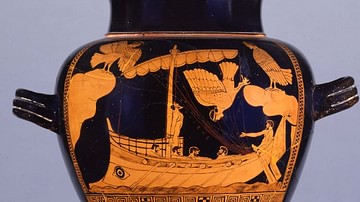
Definition
Odyssey
Homer's Odyssey is an epic poem written in the 8th century BCE which describes the long voyage home of the Greek hero Odysseus. The mythical king sails back to Ithaca with his men after the Trojan War but is beset by all kinds of delays and...
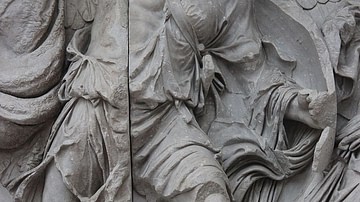
Definition
Uranus
Uranus (also spelt Ouranos) is the personification of heaven and the sky in Greek mythology. His Roman counterpart is Caelus. Gaia (Earth) gave birth to Uranus and chose him to be her equal. She lay with him, resulting in the birth of the...
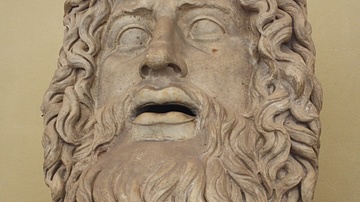
Definition
Titan
In Greek mythology the terrible and powerful Titans were those deities which preceded the Olympian gods. Never worshipped as the other gods, they nevertheless helped, through contrast, to clarify the position in the universe of the Olympian...
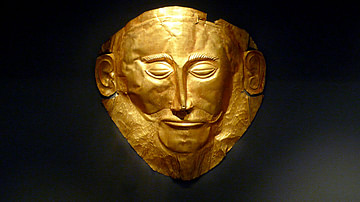
Definition
Mycenaean Civilization
The Mycenaean civilization flourished in the Late Bronze Age (c. 1700-1100 BCE), peaking from the 15th to the 13th century BCE. The Mycenaeans extended their influence throughout the Peloponnese in Greece and across the Aegean from Crete...
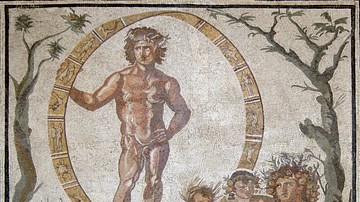
Definition
Gaia
Gaia (also Gaea or Ge) is a primordial goddess and the personification of the Earth in Greek mythology. Gaia emerged from Chaos and is considered the supreme or mother goddess by immortals and mortals alike. All gods and goddesses are descended...
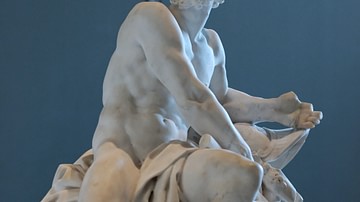
Definition
Vulcan
Vulcan or Volcanus was the Roman god of fire and forge, the equivalent of Hephaestus from Greek mythology. The son of Jupiter and Juno, he was the special patron of blacksmiths and artisans. As the god of the forge and the devastating fire...